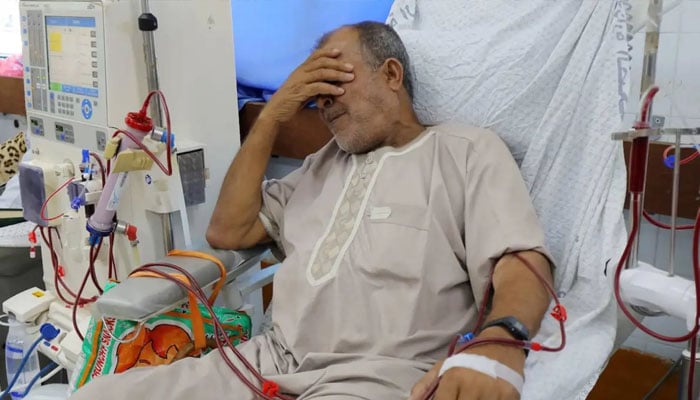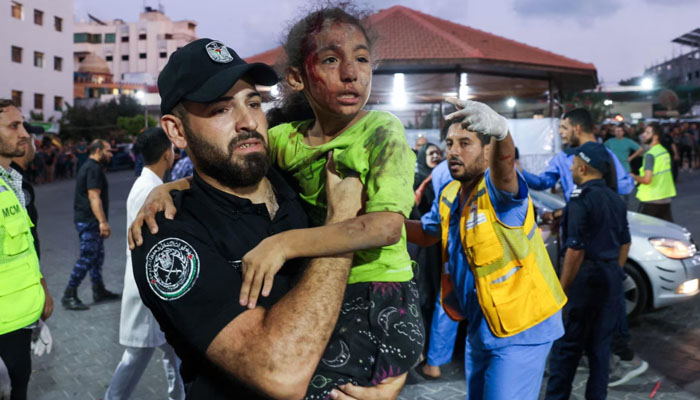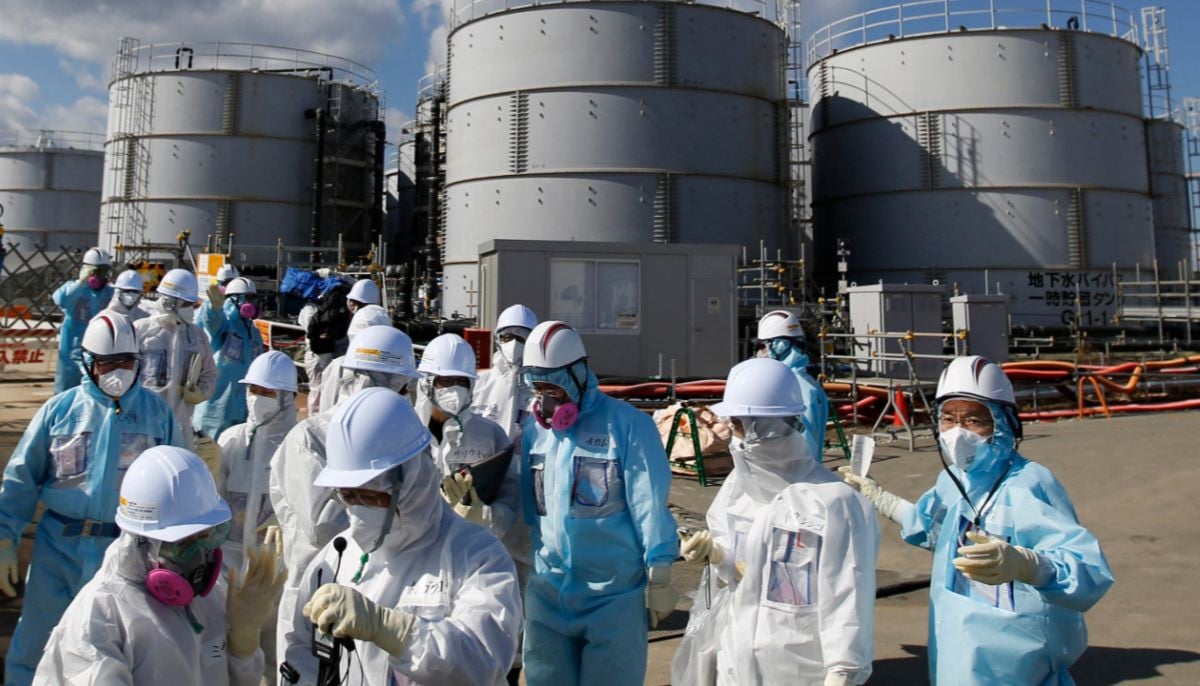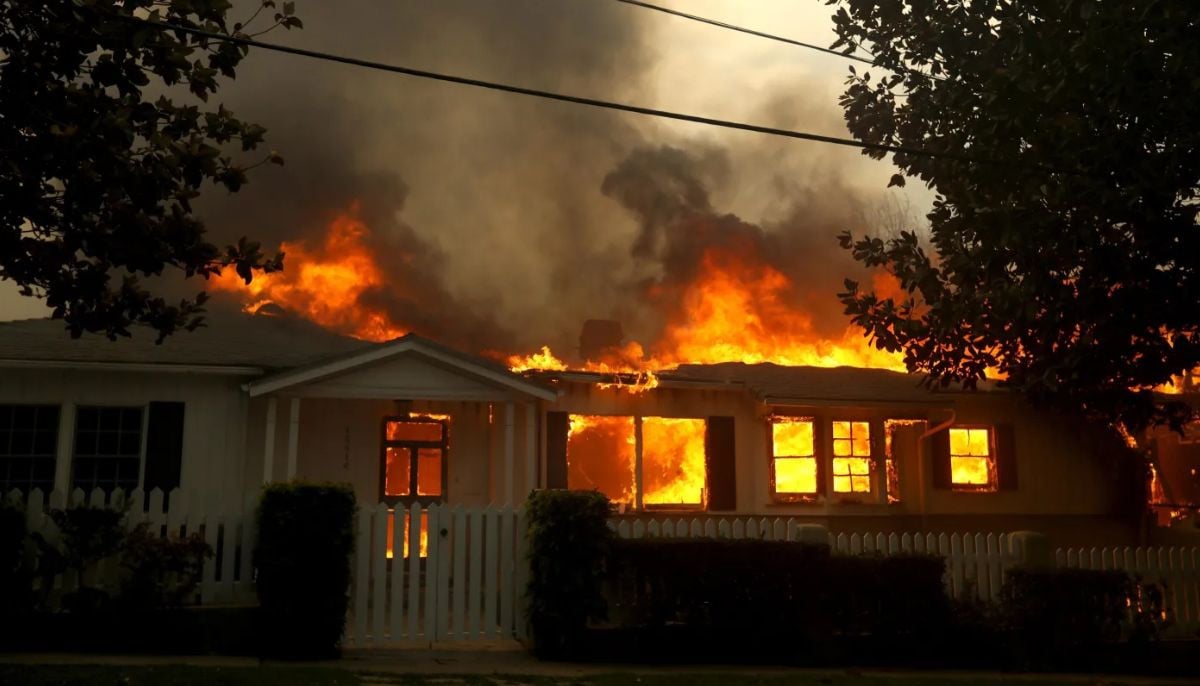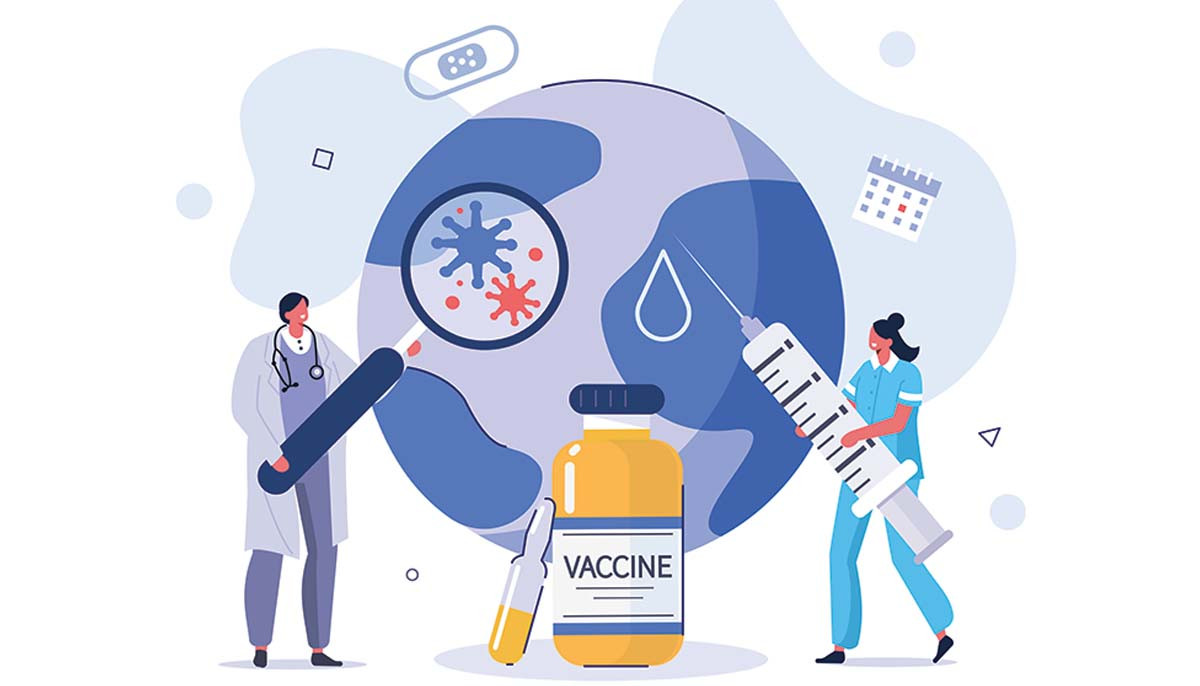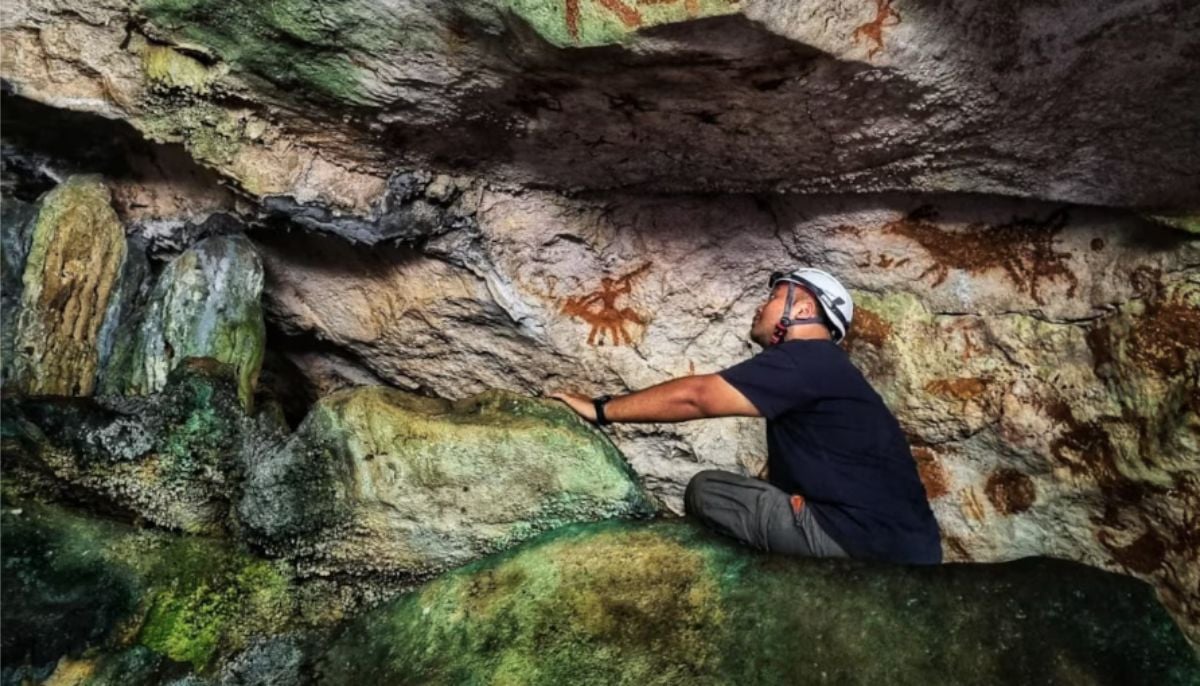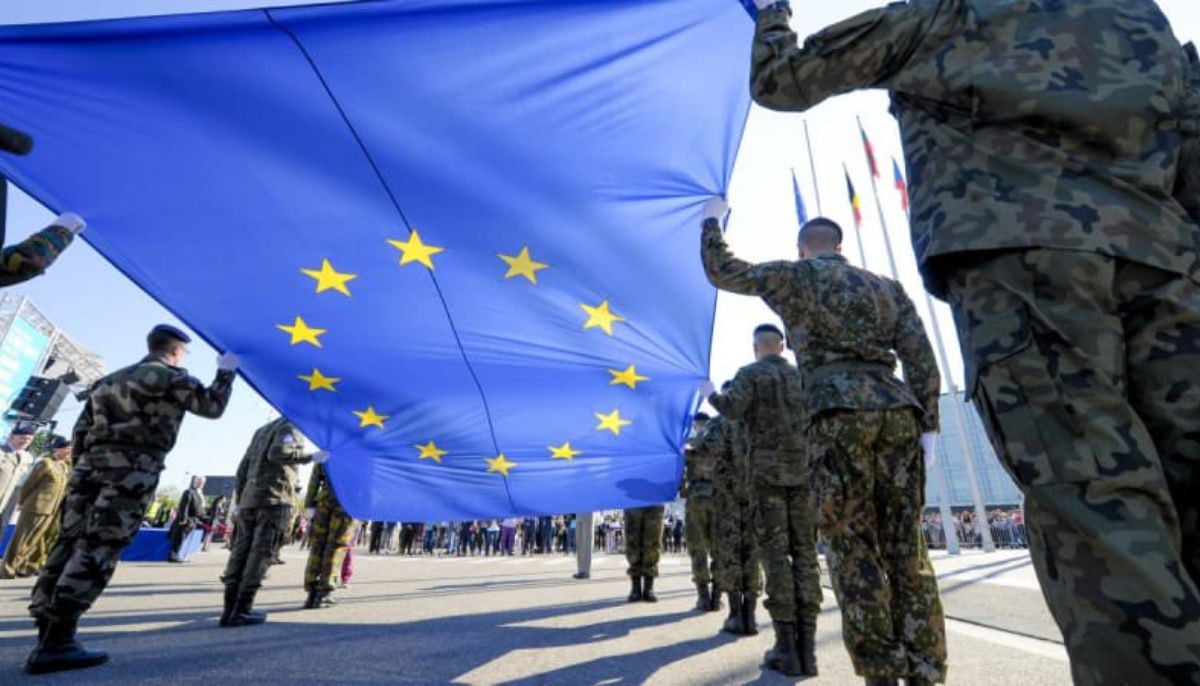Gaza kidney patients in dialysis crisis at crammed hospitals amid Israeli bombing
Gaza's kidney patients need more than 13,000 filters, 13,000 blood collection tubes, and 26,000 blood cannulas each month
The number of kidney dialysis patients at central Gaza's only Al-Aqsa Martyrs Hospital has doubled more than ever and hundreds of patients are now receiving fewer treatment sessions from just 24 dialysis machines.
Dead bodies keep showing up inside the hospital, while injured people continue to lie on the floors and patients are housed within medical tents and on mattresses outside the structure.
Here, thousands of Palestinian refugees have taken up residence, cramming themselves into waiting areas and hallways.
As a result of Israeli military orders to evacuate, a large number of chronic disease patients who were receiving treatment at hospitals in the besieged enclave's north are now at Al Aqsa Martyrs.
Dialysis is a life-or-death situation for kidney sufferers.
There were 143 patients in the hospital who needed dialysis before the most recent Israeli offensive started on October 7. Currently, there are approximately 300 patients, more than double the amount that was there before. Among them are 11 children, who together only have 24 dialysis machines.
The hospital's director general, Iyad Issa Abu Zaher, stated that the space is full.
“We have resorted to rationing of all resources and medical supplies,” he told Al Jazeera. “A kidney dialysis patient now undergoes treatment once or twice a week for an hour or two, but before they used to come in three times a week.”
Prior to the conflict, Gaza's health ministry issued a warning that a severe scarcity of dialysis supplies and fuel was endangering the lives of 1,100 kidney failure patients, 38 of whom were children.
The Gaza Ministry of Health's Hospital Pharmacy Department Director, Alaa Helles, stated last month that the territory's hospitals supplied 13,000 dialysis sessions per month.
More than 13,000 filters, 13,000 blood collection tubes, and 26,000 blood cannulas are needed each month for this, but because Israel and Egypt control the territory's border crossings, patients frequently worried about getting the resources they needed to get well before the war.
Israel has been imposing a siege on the Gaza Strip for 16 years, severely restricting the passage of goods. Since the armed wing of the Palestinian organisation Hamas attacked southern Israel on October 7, the embargo has only grown more restrictive. Regarding the amount of aid required, only a few dozen relief trucks have been permitted entry thus far, which is a "drop in the ocean." Around 450 trucks carrying supplies entered every day prior to the war.
Breaking point
In line with the health ministry's Tuesday statement regarding the remaining operational hospitals, Abu Zaher said that the Gaza Strip's healthcare system had broken down.
Already, 12 hospitals and 32 health centres have been forced to stop functioning, the ministry statement said. “And we fear that more will stop due to the Israeli targeting and the lack of fuel,” it added.
According to the statement, many medications and medical supplies have already run out in hospitals, therefore keeping the doors of the last few hospitals in the Gaza Strip open does not guarantee that these facilities can treat the injured that swarm to them.
According to Abu Zaher, without fuel, people who depend on machinery for their survival, such as those in operating rooms, critical care units, incubators for babies, and other places, are all at risk.
“Patients are stacked outside operating rooms as we don’t have enough beds,” he said. Meanwhile, others recovering after operations have been moved to the outdoor tents – “a field hospital of sorts,” he explained.
However, Abu Zaher also emphasised that there is no assurance that patients will recover after treatment because of the risk of major illnesses brought on by a congested environment and a shortage of medical resources.
“The outbreak of disease is inevitable,” he said. “There will be a humanitarian disaster after the war ends.”
‘Exhausted from this reality’
Manar Shreir, a resident of Gaza City's Zeitoun neighbourhood, used to receive kidney dialysis at the Al-Quds Hospital.
After the Israeli military ordered 1.1 million Palestinians in the north to flee to the south, she and her family evacuated the city's intensive Israeli bombing and travelled to Deir el-Balah in the central Gaza Strip, where her sister resides.
According to the Palestinian Red Crescent, the Israeli military also issued evacuation orders for the Al-Quds Hospital, saying that it would be targeted. In response to the Israeli military, the hospital's director stated that a widespread evacuation would only be feasible if Israel sent buses to move the 12,000 people—including patients—who were seeking refuge at Al-Quds to the southern Gaza Strip and made sure they would have a secure place to stay. Apparently, the Israeli official hung up.
But even those who have made it to the south, like Shreir, struggle to seek medical attention.
“My sister’s house [in Deir el-Balah] is close to Al Aqsa Martyrs Hospital, but I still have to queue for hours since the early morning, just waiting [for] my turn,” said Shreir as she sits up in a hospital bed with a red blanket around her legs.
Since 2015, Shreir has been receiving dialysis, visiting the hospital three times per week for four-hour sessions. She now counts herself lucky if she can receive up to 2.5 hours of dialysis twice a week.
“It’s a huge difference,” she said. “The session is barely enough to get the toxins and accumulated fluids out of my blood. I have to watch what I eat and drink, and I barely let water pass my lips because I don’t want to have shortness of breath or swelling.”
Israeli airstrikes struck the street parallel to Shreir's while she was returning to her sister's home following her final treatment.“It’s terrifying,” she said. “Even when you are in the hospital you’re scared. Windows have shattered before, the destruction is all around you, not to mention the horrific sound of the bombs. Inside, it’s not any better, with bodies of people killed piled up, blood on the floor and people missing limbs.
“We are exhausted from this reality. Enough criminality, enough war.”
‘Not enough’
According to Hajj Salah al-Din Ahmed Suleiman Abu Iyadeh, 61, a Gaza City refugee undergoing dialysis at Al Aqsa Martyrs Hospital, patients would experience extreme exhaustion and edoema if they do not receive regular care.
“Dialysis that is two and a half hours once or twice a week is not enough,” he said.
“These are toxins in the body which can’t be allowed to stay. Right now, we are making do, but if this war continues, there will be serious problems due to the capacity and immense pressure the hospital is under.”
Israeli attacks have killed at least 6,546 Palestinians, including 2,704 children, and injured 17,439 others, according to information released on Wednesday by the health ministry in Gaza, which is governed by Hamas.
-
Dog dies after Florida woman allegedly sets neighbour’s house on fire
-
Reviving the ‘Golden Era’: How the new UK-China partnership seeks to strengthen bilateral economic ties
-
Trump launches ‘Board of Peace’ in Davos: Inside governance, mandate & members
-
Vaccines may do far more than prevent infections
-
Davos: Elon Musk’s surprise addition to the schedule draws global attention
-
World's oldest artwork: 68,000 year-old cave paintings discovered in Indonesia
-
Spain calls for EU joint army after Trump’s declaration of Greenland deal
-
New study links ‘binge-watching addiction’ to increased social isolation
